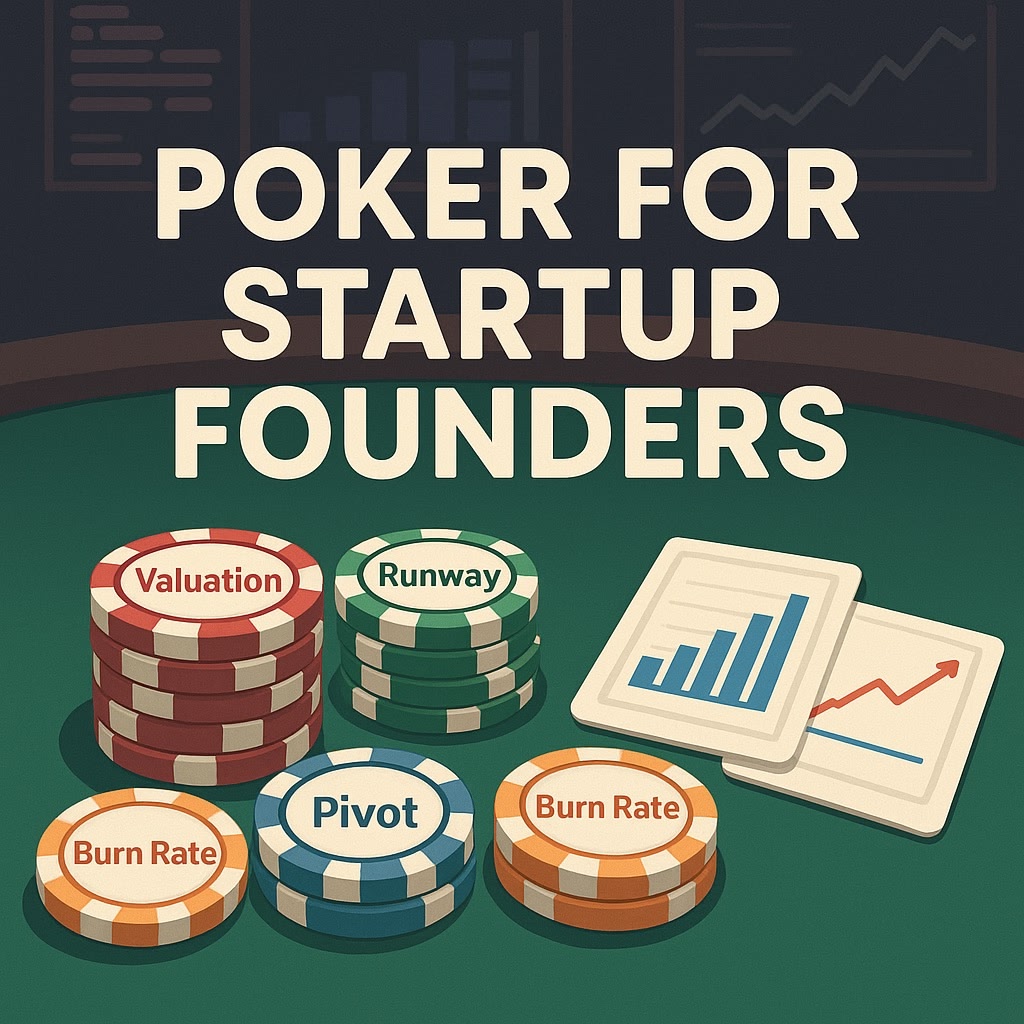Poker and startups share more than late nights, caffeine, and the occasional bluff. Both worlds rely on decision making under uncertainty, calculated risks, and knowing when to fold and move on. So let's break down some poker jargon with a founder's twist.

Pot Odds (Valuation & Dilution)
In poker, pot odds help you decide whether calling a bet is mathematically profitable. You can translate this to how you've calculated dilution with pre- and post-money valuations.
Imagine if an investor offers you a $20 million investment at a $100 million pre-money valuation. In this case, your post-money valuation becomes $120 million, and the $20m the investor put in represents a $20m/$120m = 1/6 (16.6%) ownership stake. If your anticipated return on investment is significantly higher than the dilution cost, it’s a strong signal to accept the deal.
Now imagine you're heads up, and the pot is currently $100. Your opponent is first to act, and they bet $20. In this case, you'd have to call $20, to potentially win $120. Here, your pot odds are 6:1 - meaning for every $1 you risk, you can win $6. To call this bet, you should have at least a 16.6% chance of winning.
Bankroll Management (Runway Awareness)
Bankroll management is crucial to surviving poker in the long run. Your startup's runway is exactly that. Blow it too quickly with aggressive bets (excessive marketing spend, premature scaling), and you’ll find yourself out of chips, waiting for a "new game" (funding round).
Just like poker, keeping tabs on your stack and managing burn rate prevents those early exits from the entrepreneurial table.
Bluffing (Marketing Your MVP)
The notorious bluff - convincing others your hand (product or traction) is stronger than it actually is. Every founder has likely stretched the truth at least once, making a scrappy MVP look polished or saying that a feature is available to close a deal when it's still on the roadmap.
Bluffing isn't inherently evil - it's sometimes necessary to secure funding or partnerships. Just be ready if someone calls your bluff.
Folding (Pivoting or Shutting Down)
Knowing when to fold is key in poker, as in startups. It's painful but necessary; sometimes the best move is to walk away from a losing proposition or radically pivot your business model.
Great founders aren’t defined just by their persistence but also by their ability to recognize a losing hand and reshuffle for better odds.
Bad Beats (Market Realities)
A bad beat is when you're statistically favored to win, but fate says otherwise. Think startup equivalent: market shifts, sudden regulatory changes, or OpenAI suddenly releasing your product as a feature.
Every founder has a bad beat story. Embrace it, learn from it, and don't tilt into oblivion.
